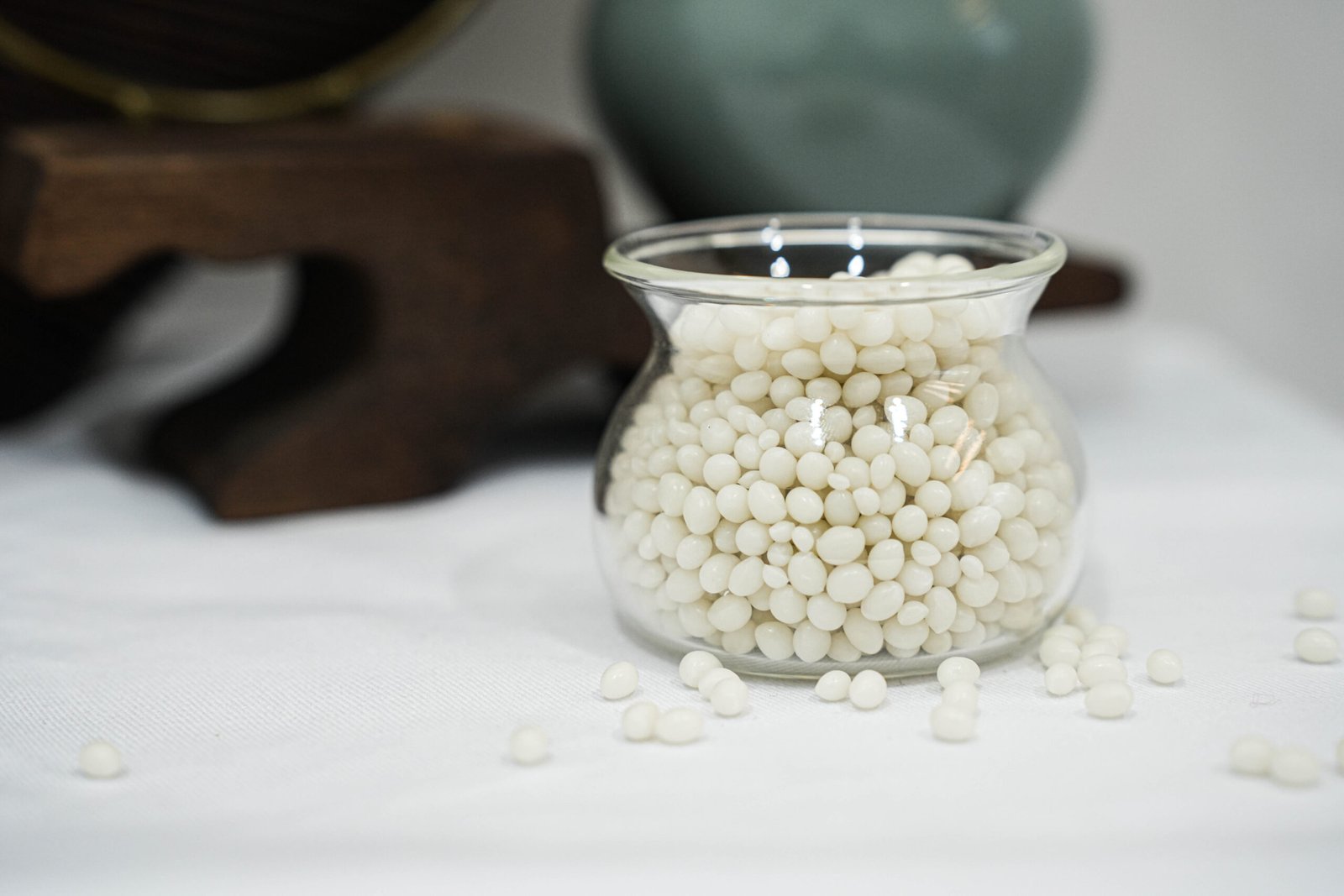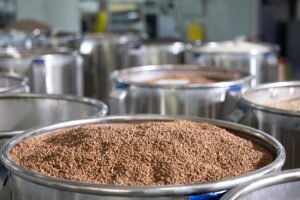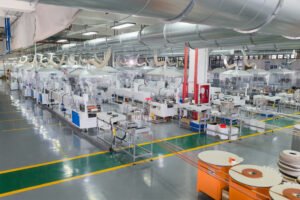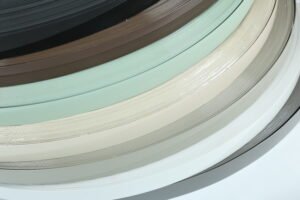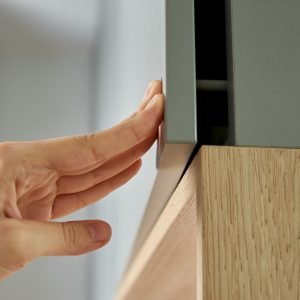Edge banding costs can add up fast. If you’re not tracking glue usage, you could be wasting money without even realizing it.
On average, edge banding one 4×8 ft panel requires around 30 to 50 grams of glue. The exact amount depends on edge type, machine setup, and material used.
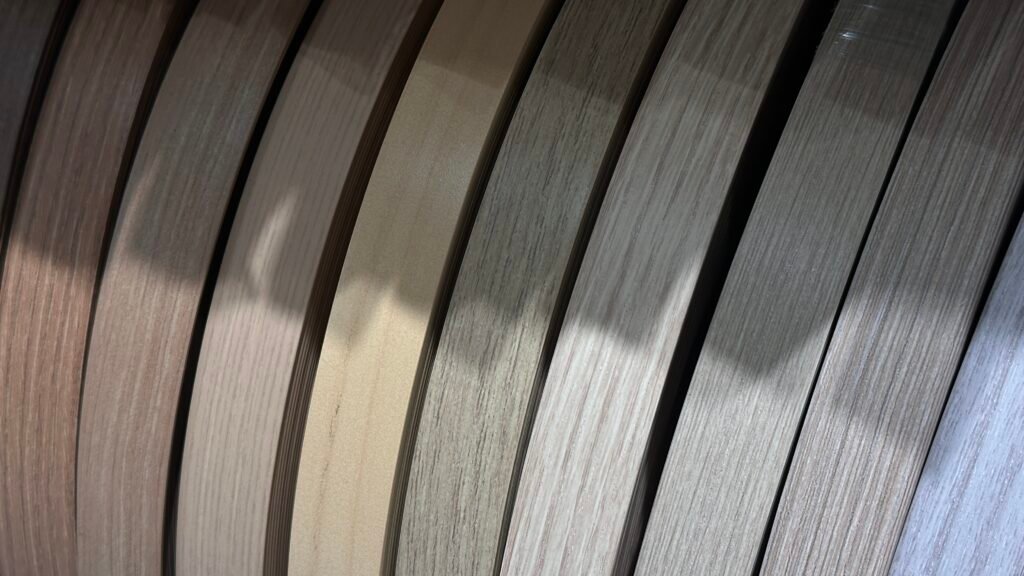
Knowing how much glue is needed per sheet helps manage cost and improve consistency. Let’s break it down step by step.
What Factors Affect Glue Consumption in Edge Banding?
Glue waste starts with the wrong setup. Even small changes in production can drive up glue use.
Glue usage varies based on board size, glue type, edge band material, and machine settings.
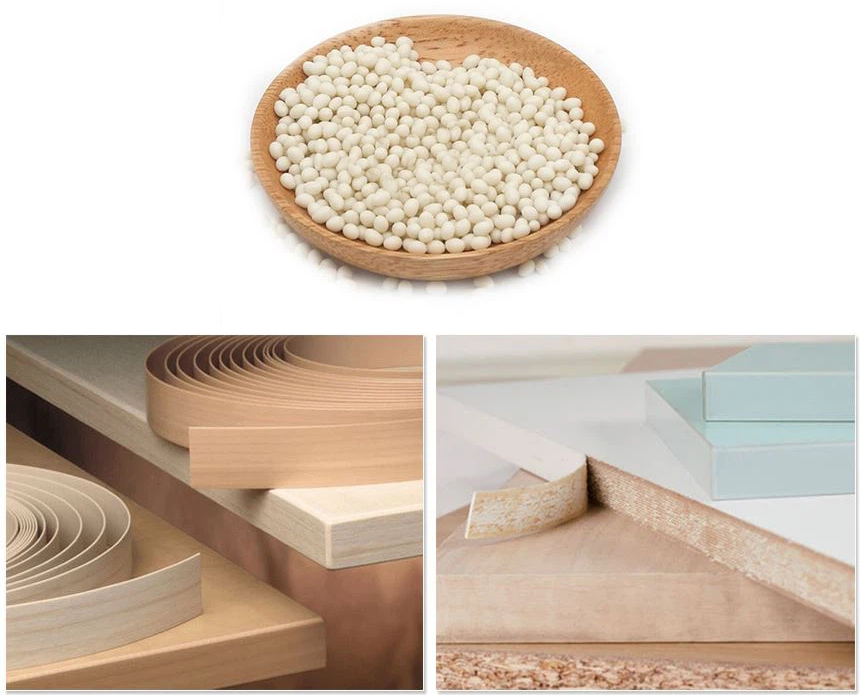
Key Variables to Watch:
| Factor | Description |
|---|---|
| Panel Dimensions | Larger panels use more glue due to longer edges. |
| Edge Band Type | Thick PVC or L-shape profiles need more adhesive. |
| Glue Type | PUR, EVA, and hot air glue systems all behave differently. |
| Application Method | Slot nozzle vs roller head affects coverage. |
| Feed Speed | Faster speed might reduce glue transfer. |
| Pressure & Heat | Wrong pressure or low heat causes poor bonding, leading to rework. |
I’ve seen factories reduce glue costs by up to 15% just by fine-tuning these variables. It’s worth the time.
Glue Usage Calculation: How to Estimate Per Sheet Consumption
Not tracking your glue cost? You’re flying blind.
To estimate glue per sheet, measure total edge length, then apply a standard glue weight per meter depending on your setup.
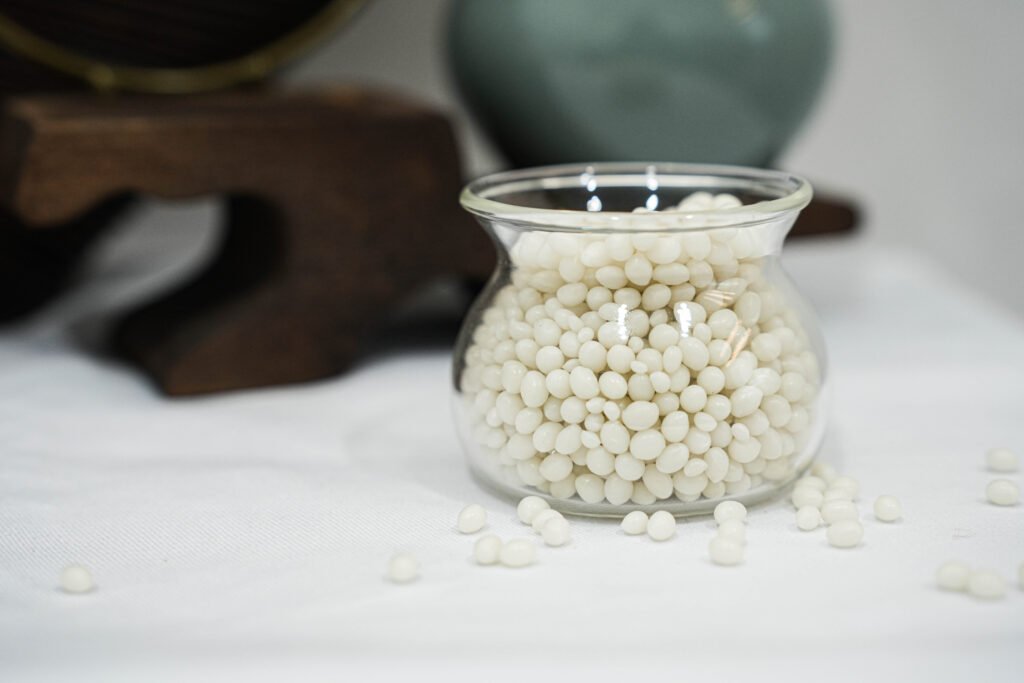
Example Calculation:
Let’s say you are applying edge banding to a 4×8 ft panel:
- Total edge length = (4+8+4+8) ft = 24 ft = approx. 7.3 meters
- EVA glue usage = ~6 grams per meter
Total glue needed = 7.3m x 6g = ~44 grams
This is a general estimate. If you use PUR glue, the number drops. If you’re overapplying, it jumps. Monitoring it regularly helps keep things in control.
Comparing Glue Requirements for EVA, PUR, and Hot Air Systems?
Glue types are not all equal. Choosing the wrong one might cost more than it saves.
EVA uses the most glue, PUR the least, and hot air systems use none — but need expensive machines.
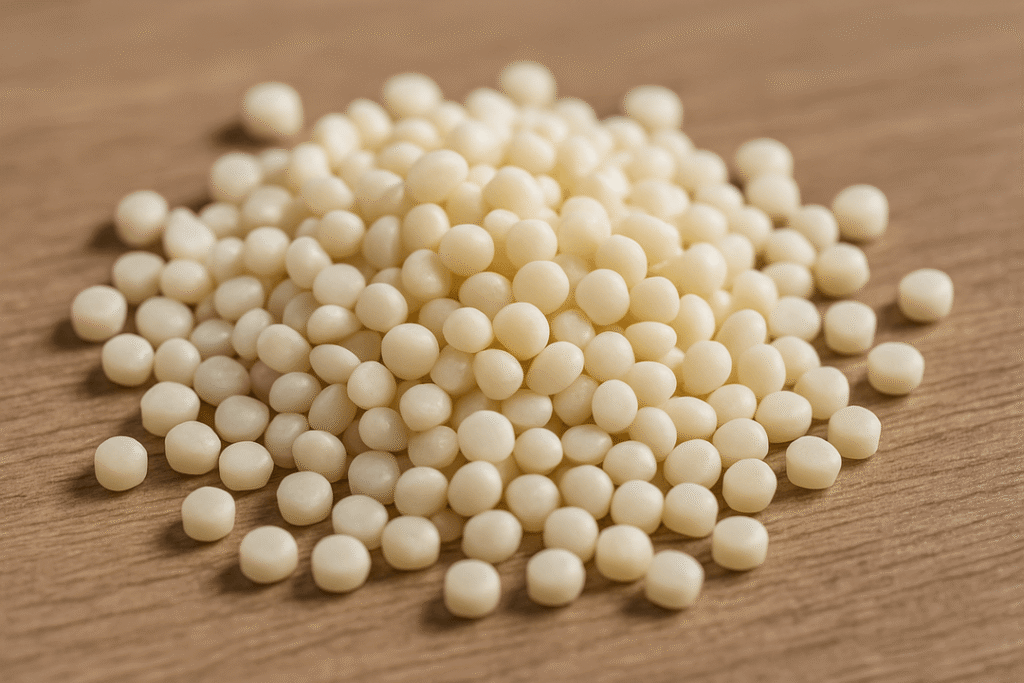
Comparison Table:
| Glue Type | Typical Usage (g/m) | Key Benefits | Limitations |
| EVA | 6–10 g/m | Low cost, easy use | Weaker bond, higher usage |
| PUR | 3–5 g/m | Strong bond, water/heat resistant | Higher cost, cleaning needed |
| Hot Air | 0 g/m (uses pre-applied layer) | Cleanest look | High equipment cost |
In my experience, factories doing high-end kitchen cabinets prefer PUR or hot air for durability and cleaner lines.
How Edge Banding Machine Settings Influence Glue Usage?
The same glue can give different results if your machine isn’t dialed in.
Settings like roller pressure, glue temperature, and feed speed directly impact how much glue is applied.
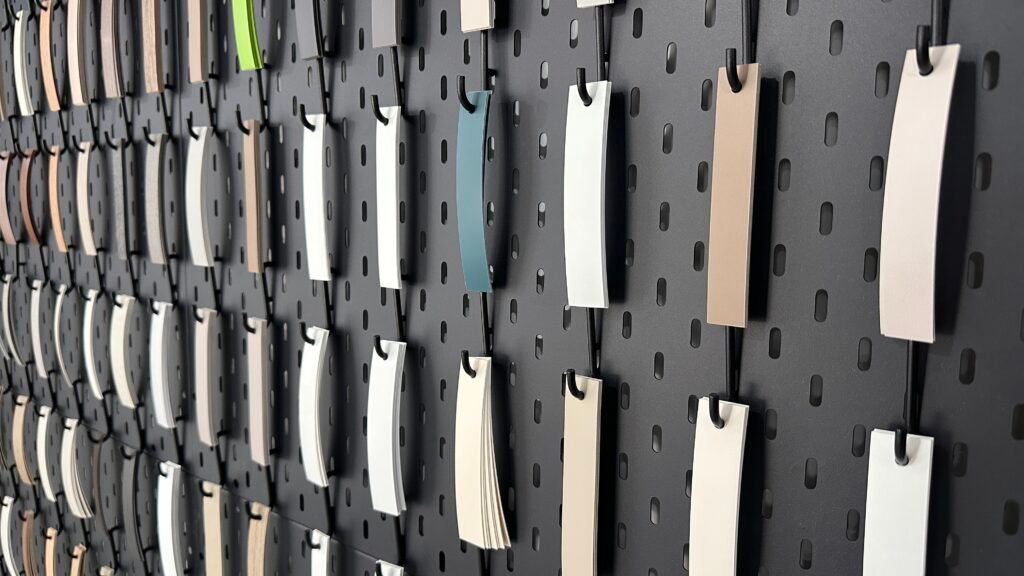
Key Setting Impacts:
| Setting | Impact |
| Glue Pot Temperature | Too hot = waste, too cold = poor bonding |
| Roller Pressure | Low pressure = weak adhesion, high = squeeze-out |
| Feed Speed | Fast = thinner glue layer, slow = heavier coverage |
| Nozzle Size | Large nozzles overapply glue, small ones underdeliver |
I always recommend running a test panel before starting large batches. A few minutes here can save kilos of wasted glue later.
Tips to Reduce Glue Waste and Improve Bonding Efficiency?
Every gram counts when you’re doing thousands of panels.
Simple steps like cleaning rollers, using the right glue temp, and switching to PUR can reduce waste by 10–20%.
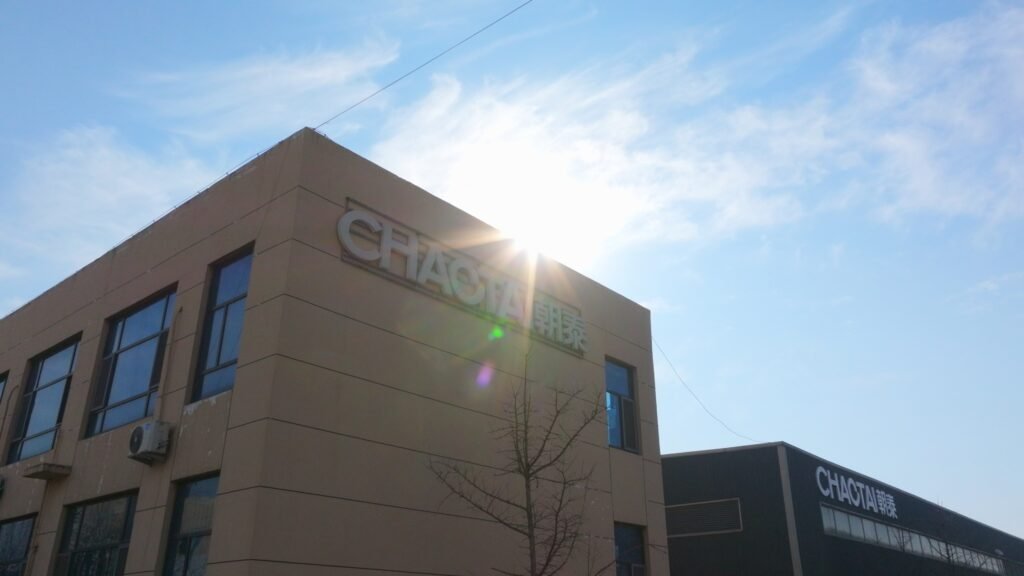
Practical Tips That Work:
- Preheat glue to exact specs. Don’t guess, use a thermometer.
- Avoid overpressure. It just squeezes glue out and wastes money.
- Switch to slot nozzles if you’re still using roller systems.
- Keep glue rollers clean to avoid buildup and uneven spread.
- Train staff on visual glue checks, especially at start/end of shifts.
These tips sound basic, but when I applied them, I saw a 12% glue saving in a month. That’s real money back to your bottom line.
Conclusion
Glue costs matter. Start measuring per sheet, adjust your machines, and choose the right glue to save money long term.

